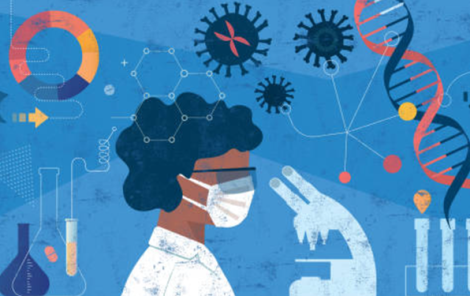Exploring Global Research Efforts: A Spotlight on STAR-IDAZ’s Work

By spearheading international collaborations and promoting coordinated research, STAR-IDAZ is at the forefront of addressing animal health challenges, underscoring its dedication to global One Health objectives. This article takes a closer look at the global research initiatives through the STAR-IDAZ International Research Consortium on animal health.
As the world addresses complex animal health challenges, research and development (R&D) remain critical in providing the tools and knowledge necessary to mitigate disease impacts. STAR-IDAZ (the International Research Consortium on Animal Health) leads global efforts to accelerate impactful research by enhancing partnership of funders and research programme owners worldwide. The World Organisation for Animal Health (WOAH) is part of the Executive Committee of the Consortium and co-hosts the STAR-IDAZ Secretariat. This year, STAR-IDAZ expanded its network by welcoming new partners, such as International Development Research Centre (IDRC-Canada), Kenya Agricultural and Livestock Research Organisation (KALRO – Kenya), National Agricultural Research Organisation (NARO – Uganda), Office National for the Sanitary Safety of Food Products (ONSSA – Morocco), the Swiss Regional Consortium Federal Food Safety and Veterinary Office (FSVO) and Institute of Virology and Immunology (IVI), each bringing unique expertise and advancing STAR-IDAZ’s mission to address pressing animal health issues.
Addressing High Pathogenicity Avian Influenza
One of STAR-IDAZ’s major focus areas in 2024 has been High Pathogenicity Avian Influenza (HPAI) in mammals, a zoonotic threat with serious implications for animal and human health. In response, STAR-IDAZ partners have conducted extensive research and surveillance to enhance prevention and management of the outbreaks. For more information, see the STAR-IDAZ summer newsletter 2024.
Tuberculosis Roadmaps
Bovine Tuberculosis (bTB) remains a significant economic burden in cattle populations worldwide and an important One Health challenge. In response to this challenge, STAR-IDAZ developed three strategic research roadmaps covering diagnostics, vaccines and control strategies to address this persistent disease. Created with input from bTB experts, these roadmaps focus on bridging research gaps to advance global bTB control. An executive summary of critical research gaps can be found here.
One Health Approach
Embracing the One Health framework, STAR-IDAZ collaborated with the Global Research Collaboration for Infectious Disease Preparedness (GloPID-R) to release ‘Mapping One Health: An Exploration of the Global Funding Landscape for One Health Research’. This report provides recommendations for research funding organisations to better align their funding strategies to integrate the One Health approach more widely. An international workshop is also foreseen in early 2025 to keep the discussion ongoing.
Alternatives to Antimicrobials
Recognising antimicrobial resistance (AMR) as a global health challenge, STAR-IDAZ focuses its AMR efforts on developing Alternatives to Antimicrobials (ATA). ATA are crucial in combating antimicrobial resistance for the benefit of both animal health and One Health and Research and Development (R&D) is critical to advance these alternatives. Research gaps were identified and partners continue to work on streamlining research on these priorities (see State of the Art Report 2023).
Coronavirus Research Initiatives
STAR-IDAZ recently hosted a series of three online workshops focused on coronavirus research, uniting around 40 international experts to develop research roadmaps for control strategies, diagnostic tools and vaccine development. The resulting workshop report and executive summary identify research gaps for addressing coronavirus-related challenges.
Aquaculture Workshop and Survey
WOAH and STAR-IDAZ will co-host an aquaculture workshop at WOAH Headquarters in Paris in February 2025. It will address research priorities for finfish health in the aquaculture sector. The workshop will unite experts, industry leaders and funders to discuss critical needs. In parallel, a global survey will be launched to gather input on aquaculture research priorities, ensuring broad engagement across different sectors in this growing field.
2024 State of the Art Report
For an in-depth overview of current research priorities, STAR-IDAZ released its 2024 State of the Art Report, which examines the latest advancements across ten focus areas. The report serves as a resource for researchers, policymakers and stakeholders, guiding strategic research efforts to advance STAR-IDAZ’s mission of safeguarding animal health globally.
* * *
Through these efforts, STAR-IDAZ continues to drive international collaborations and foster coordinated research that is essential for tackling animal health challenges, thereby reinforcing its commitment to global One Health goals.
